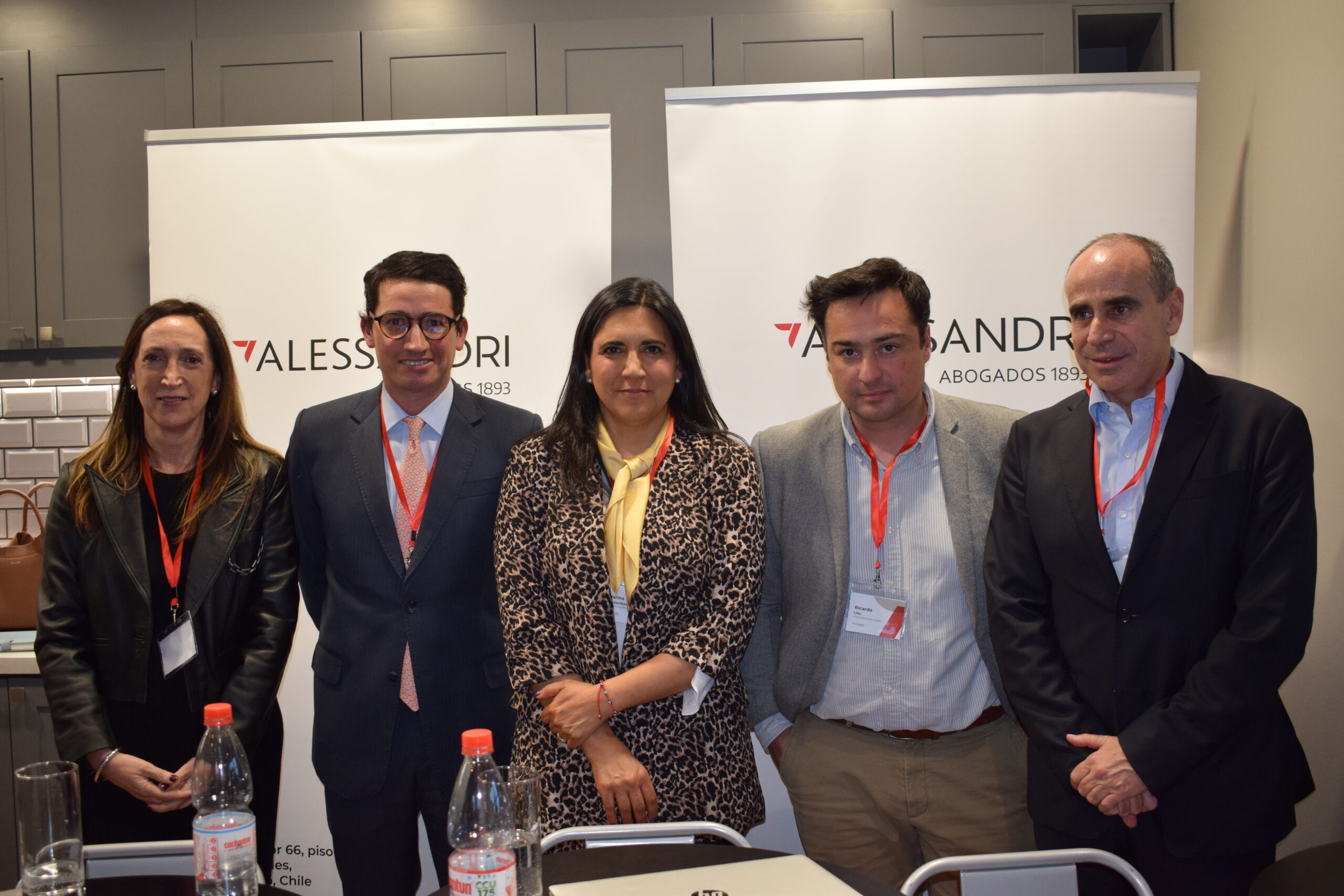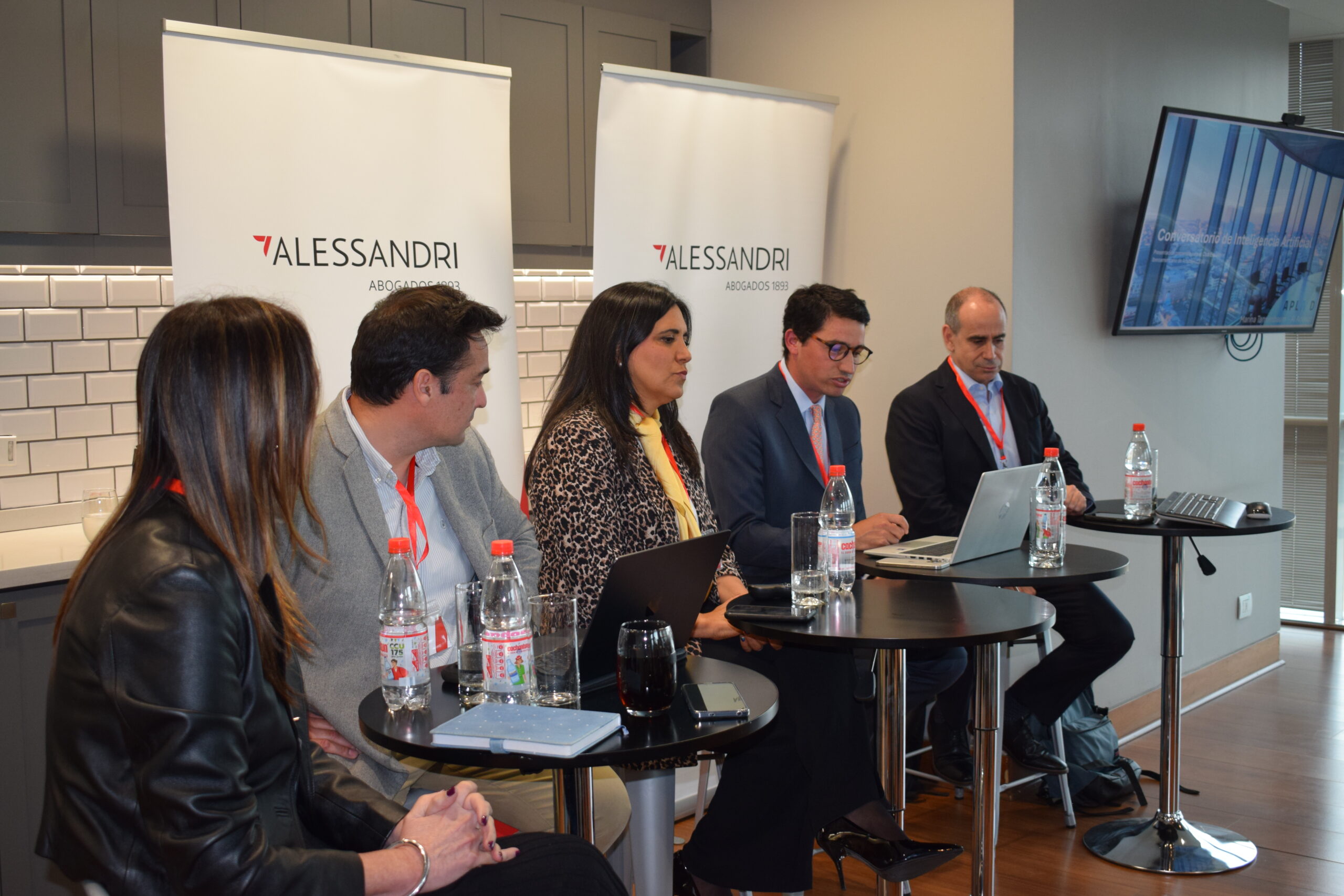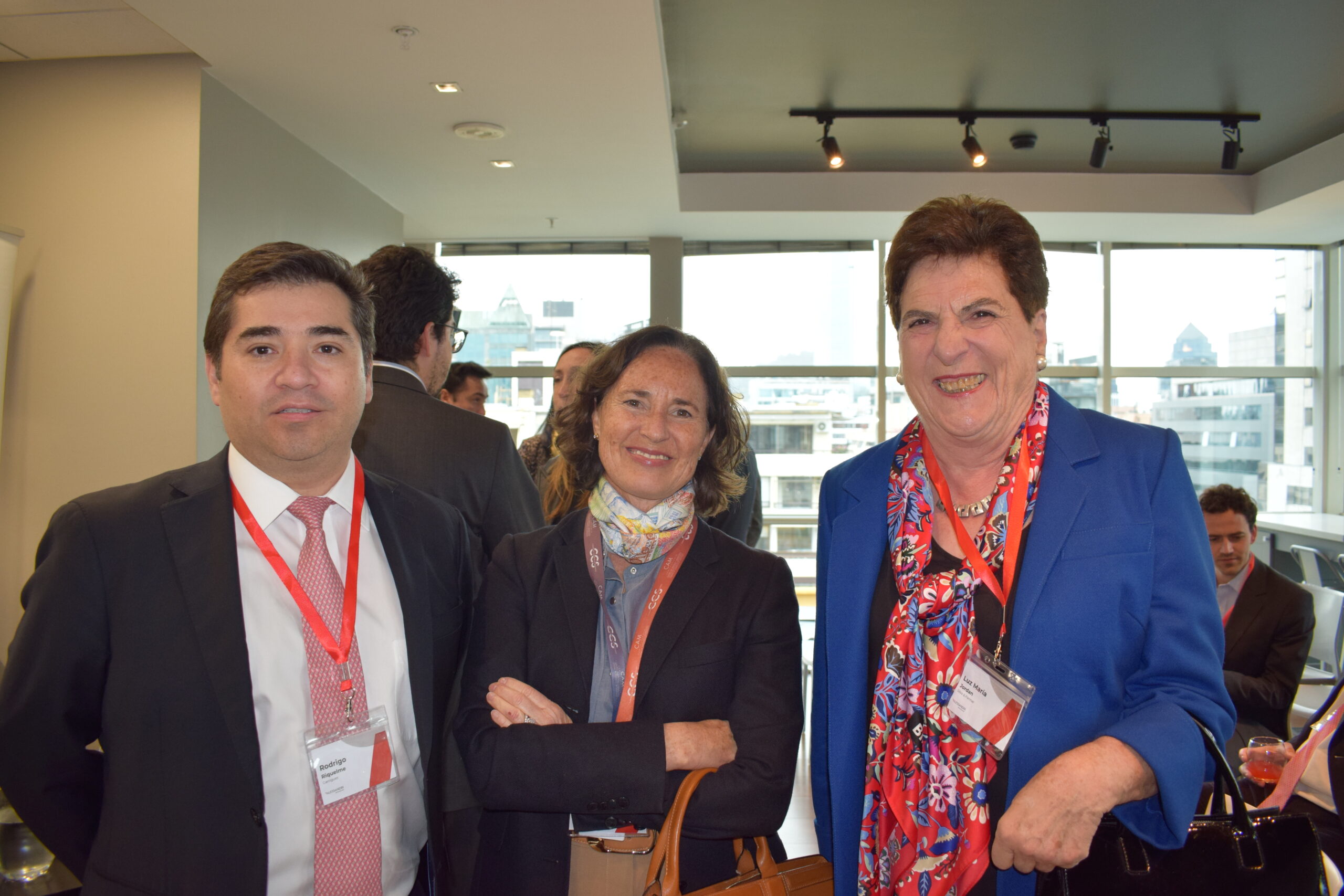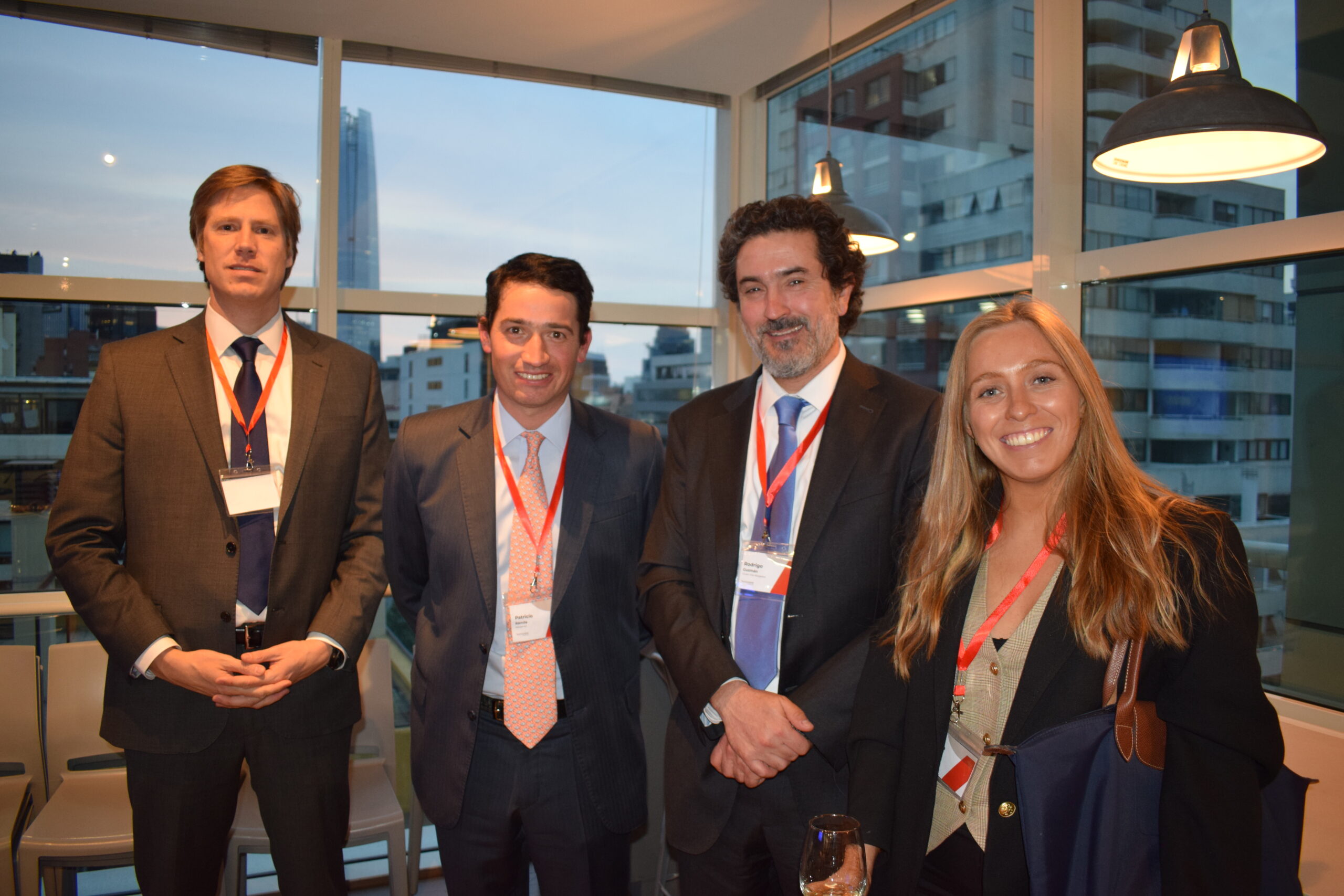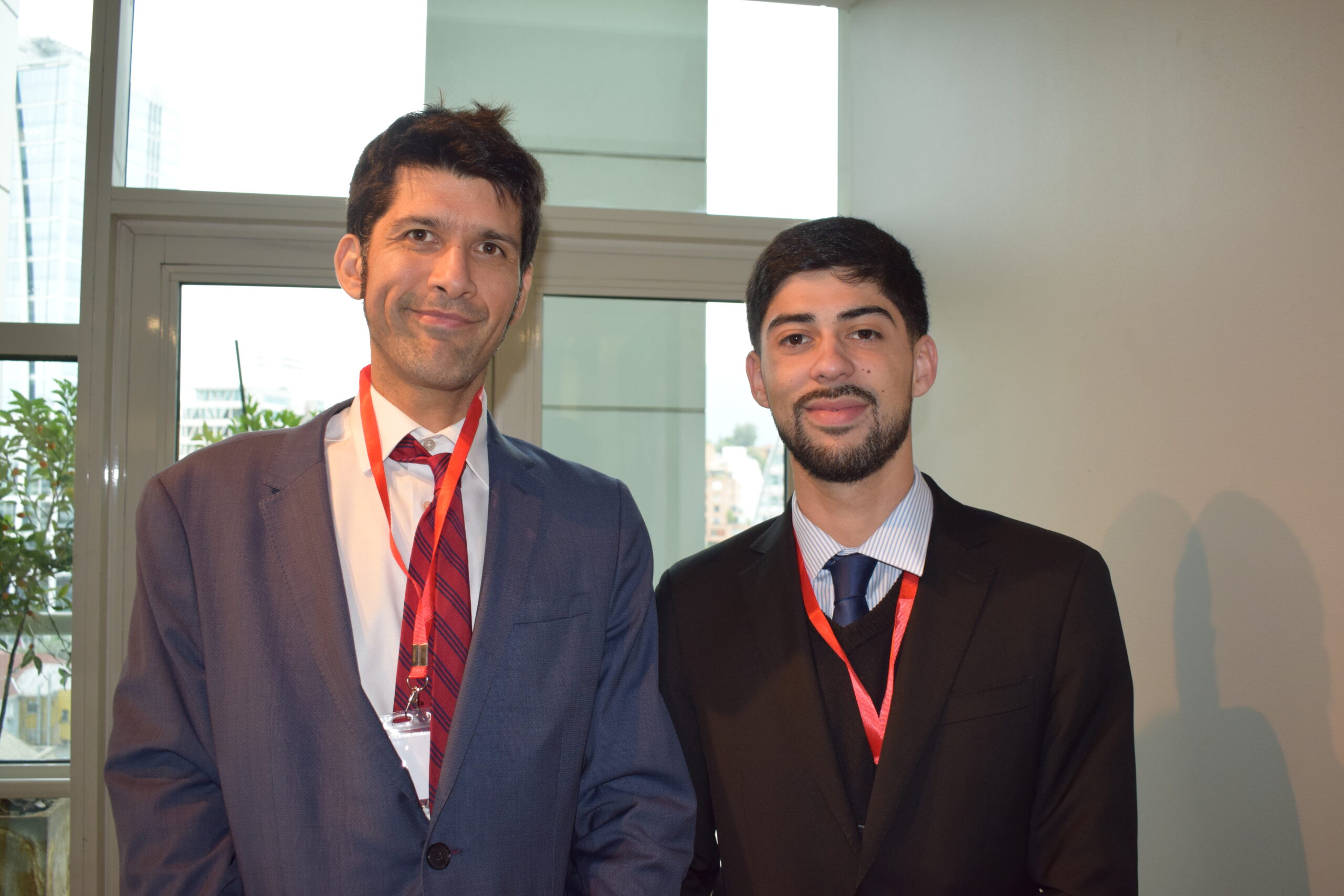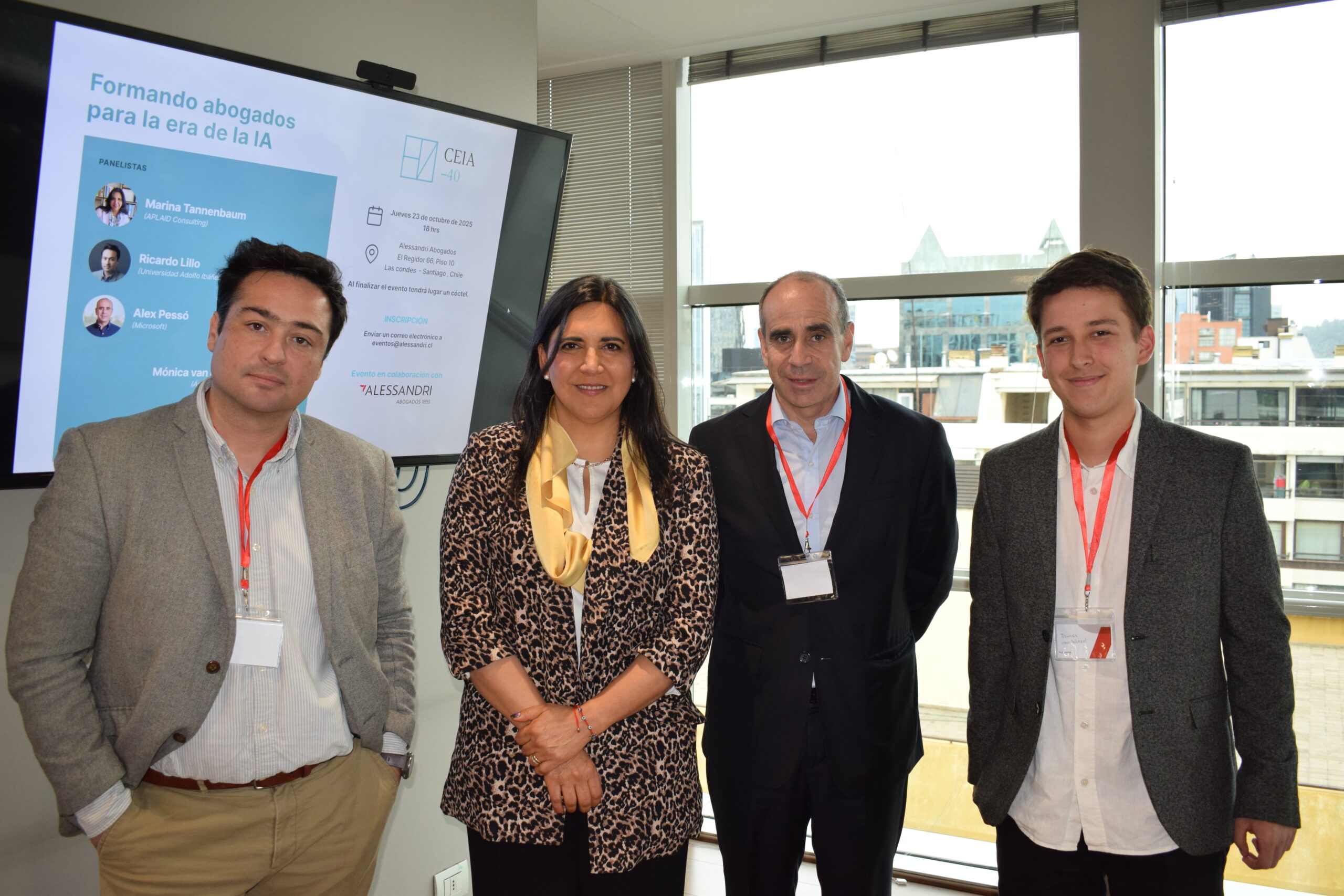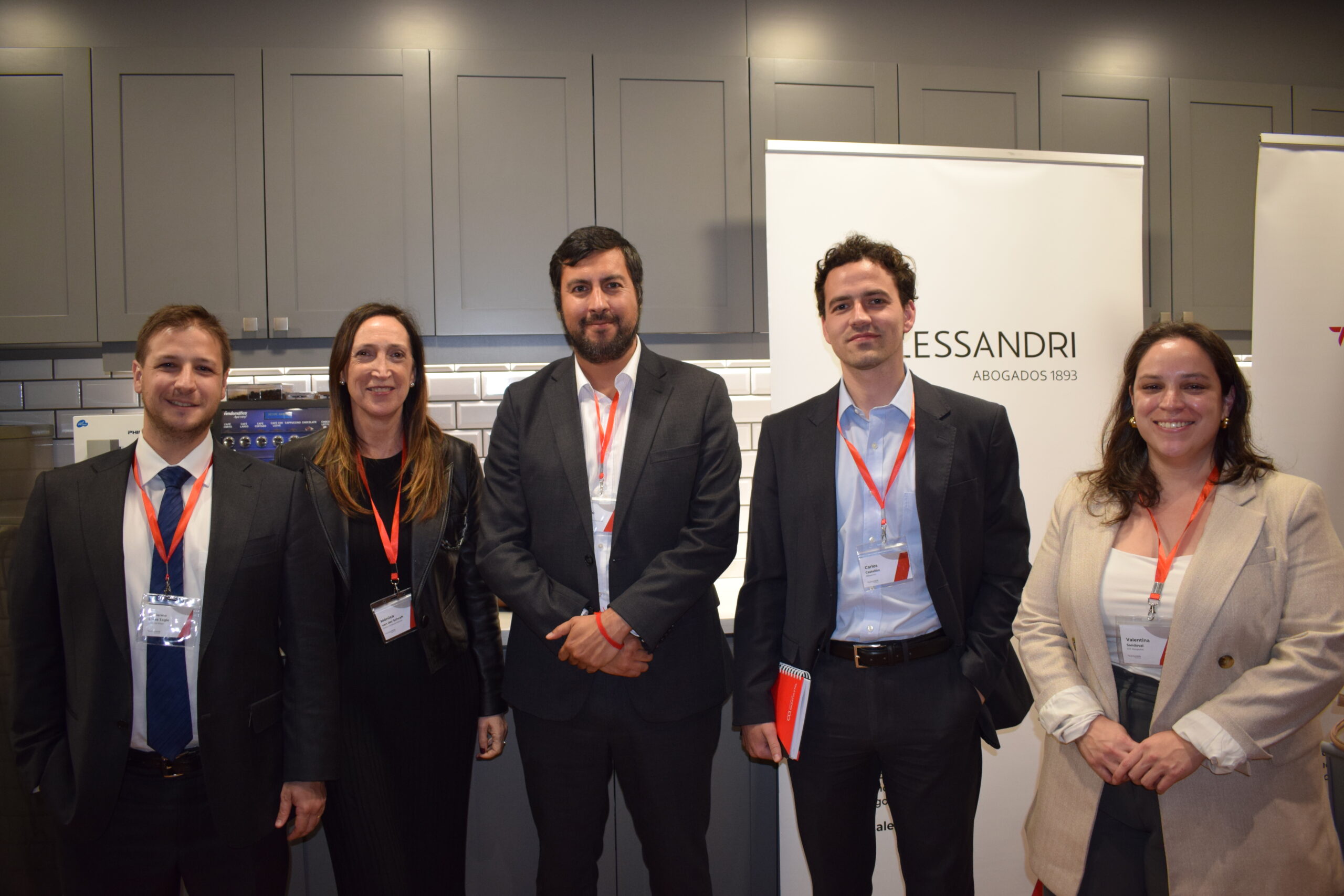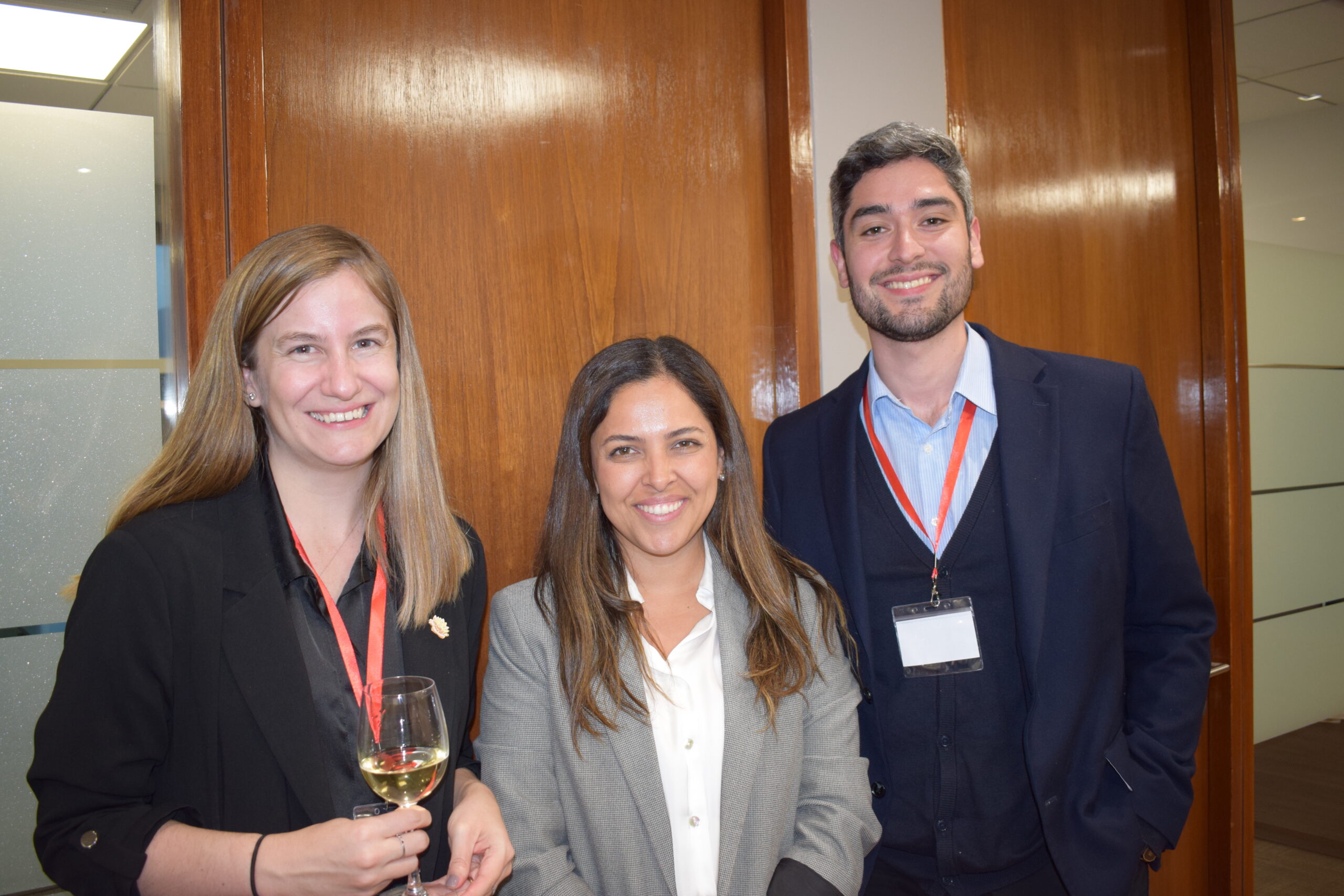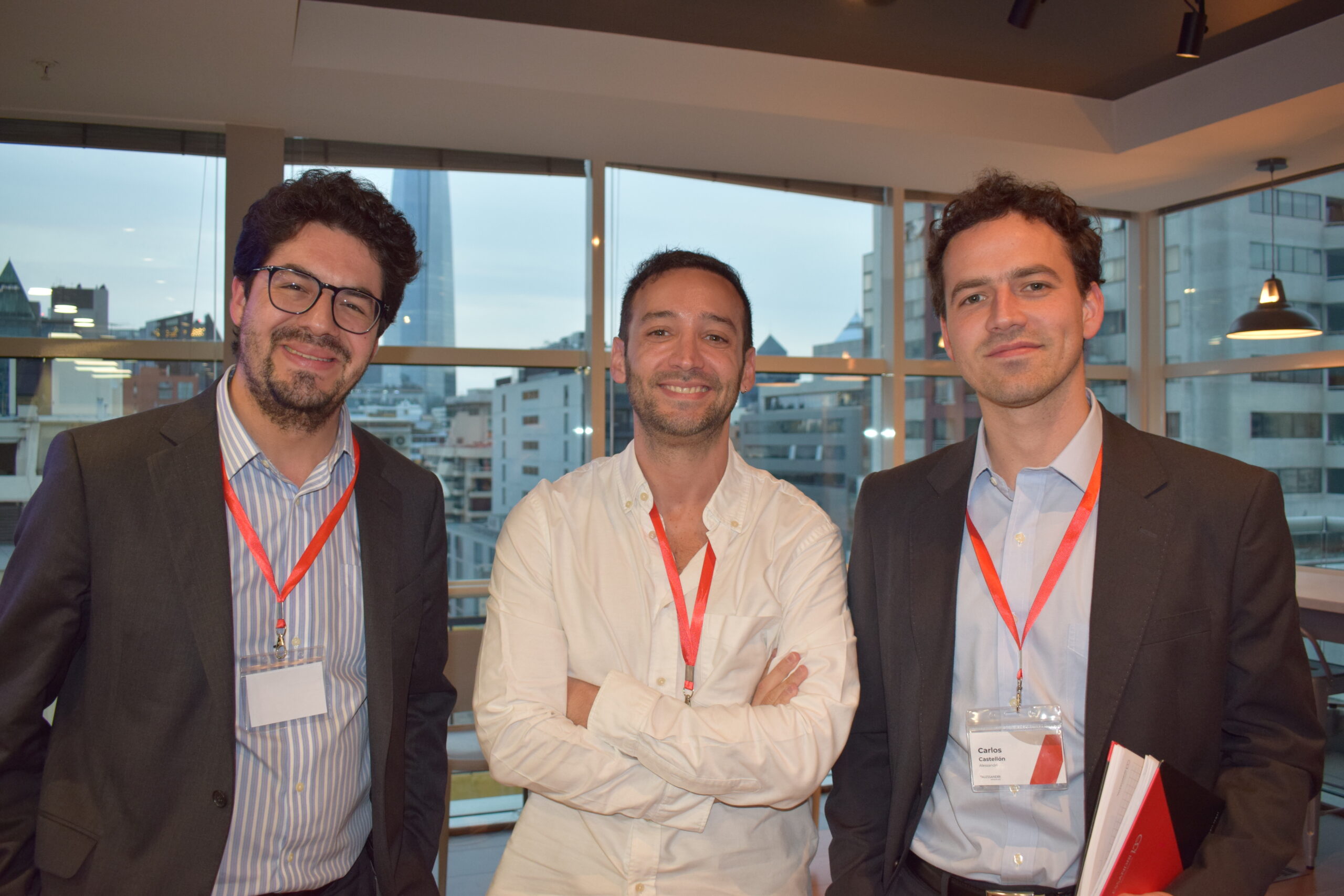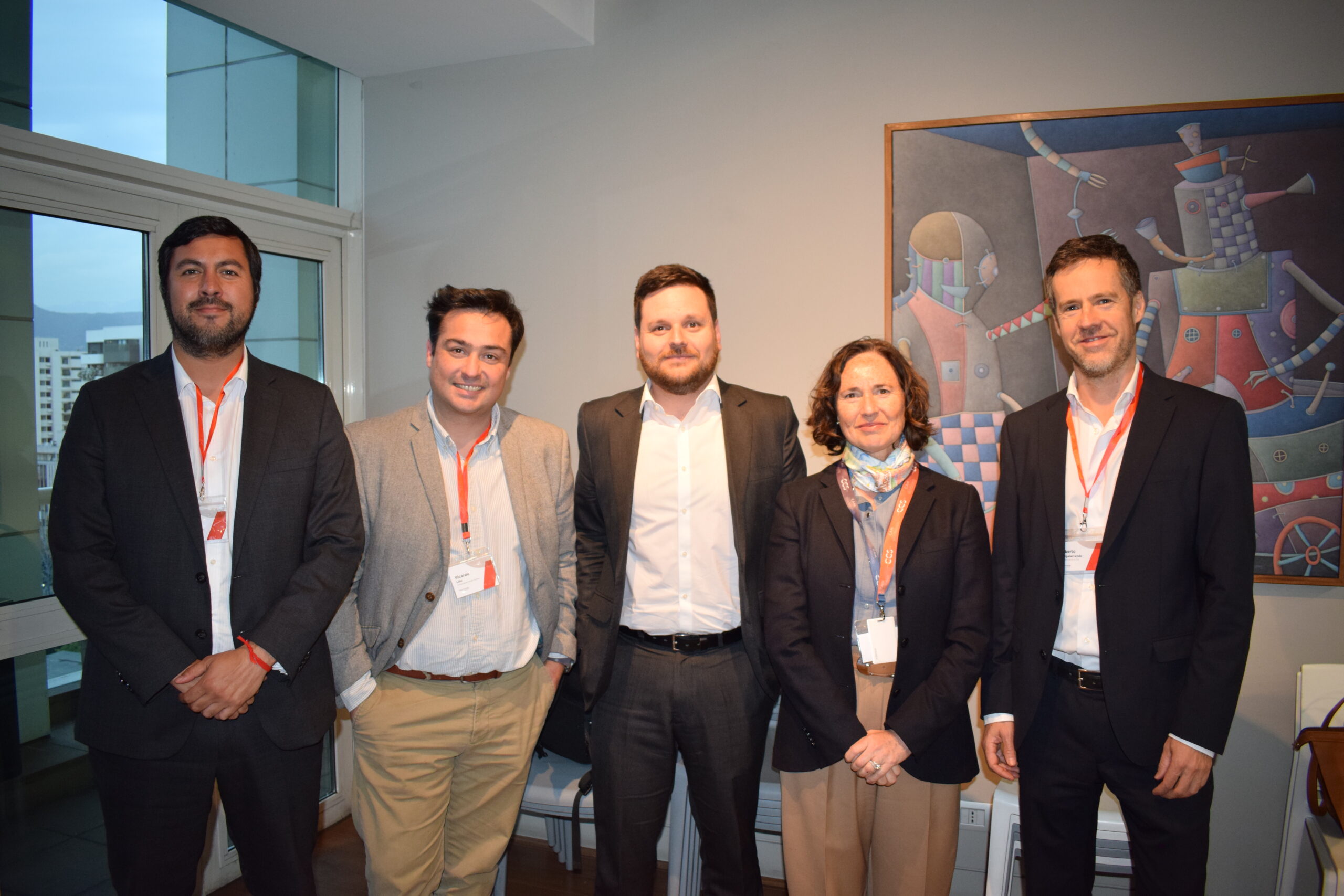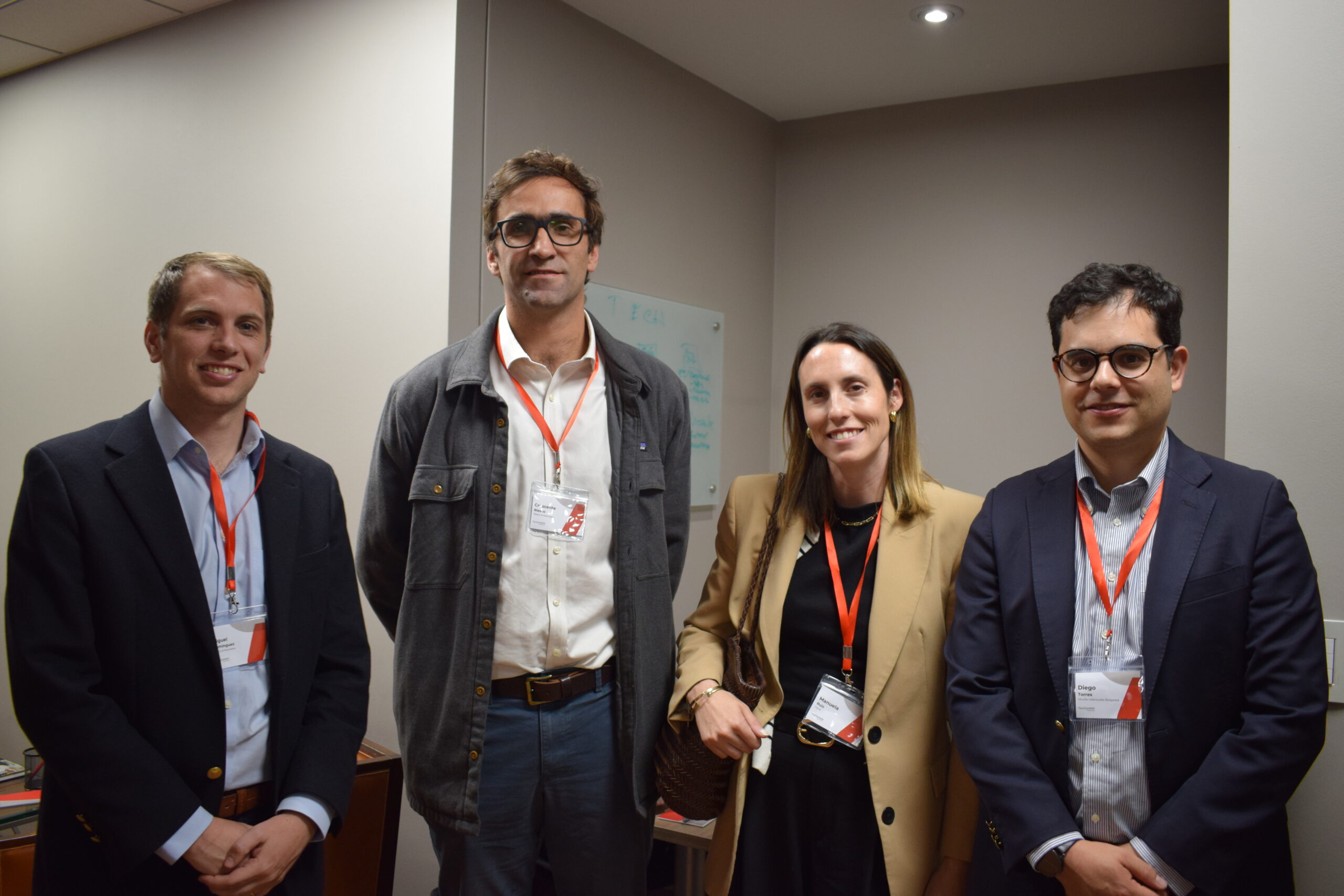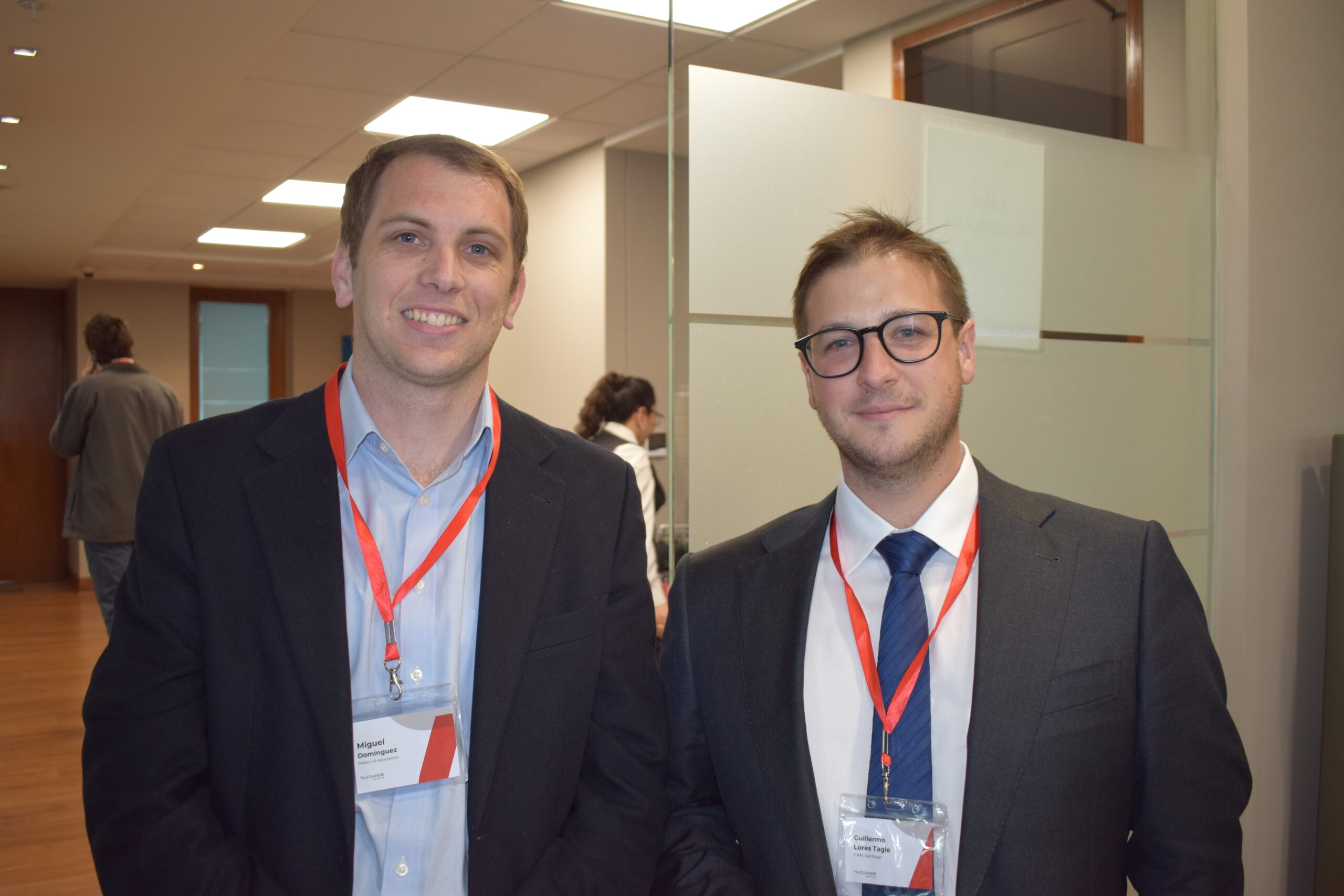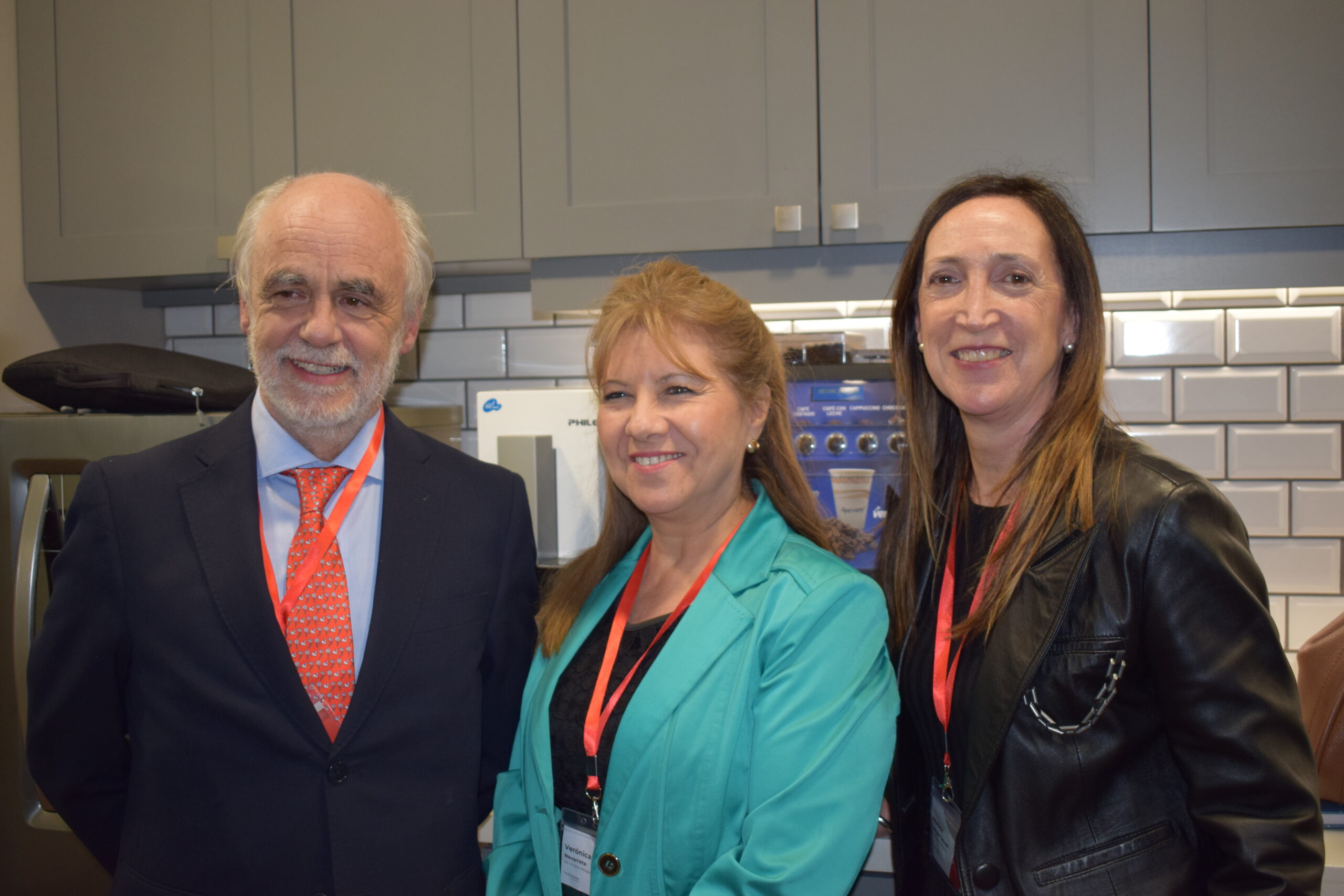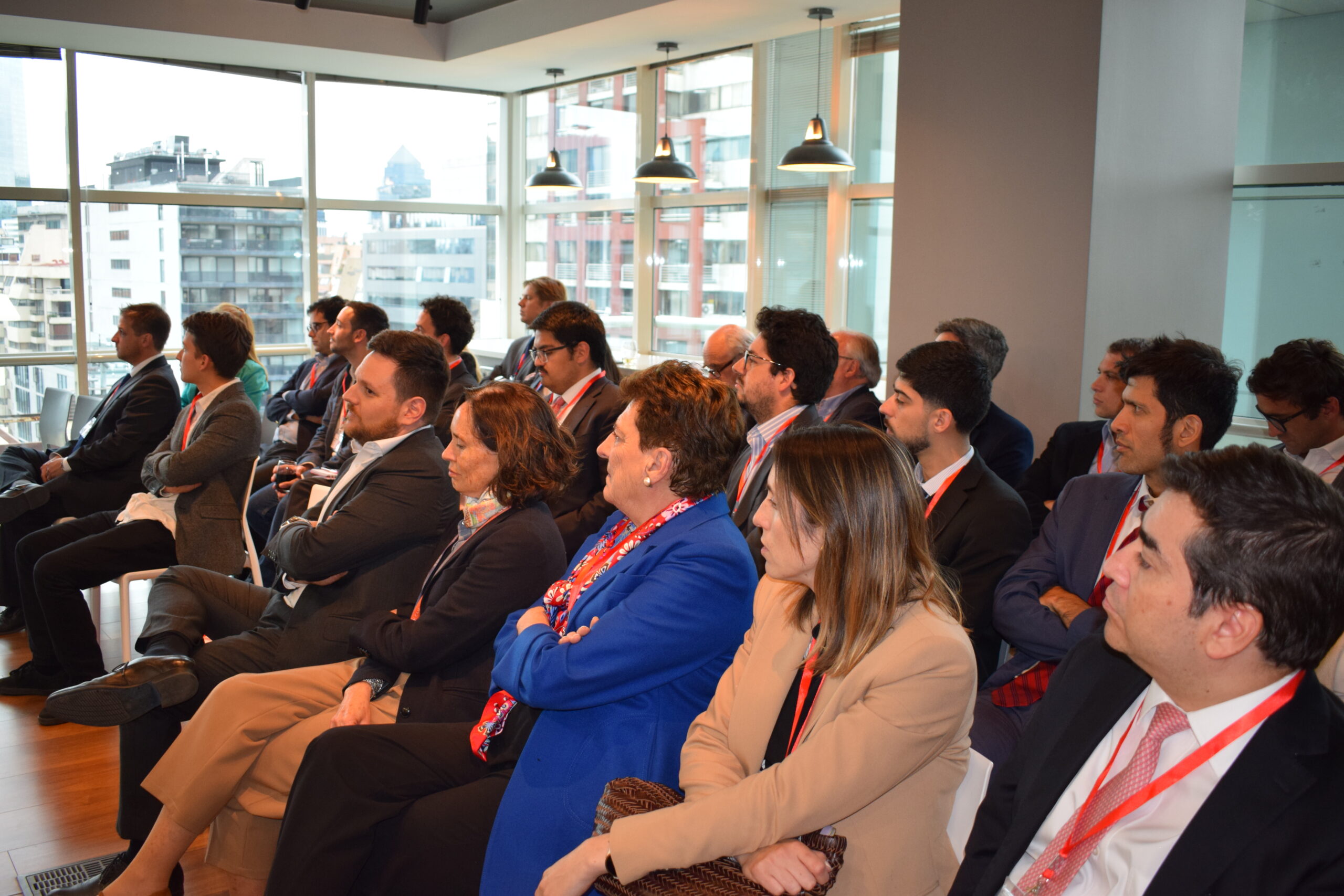/ Training lawyers for the AI era: Conversation at Alessandri
November 10, 2025Alessandri hosted the meeting “Training lawyers for the AI era,” organized by -40 of the Chilean chapter of the Spanish and Ibero-American Arbitration Club (CEIA-40). The event brought together leading professionals to reflect on how artificial intelligence is transforming legal education and the entry of new lawyers into the legal world.
The event was moderated by our partner Patricio Rámila, CEIA -40 coordinator for South America, who welcomed attendees and highlighted the importance of creating spaces for dialogue on the challenges that technology poses to the legal profession. The event was commented on by Mónica van der Schardt, president of the Chilean chapter.
Panel perspectives
Marina Tannenbaum, director of APLAID Consulting, explained that AI should not be considered an isolated tool, but rather an infrastructure that impacts industries, business models, and regulation. She presented key concepts such as language models (LLM), algorithmic bias and risk, explainability, and AI governance, and warned that AI will change the value of work and that the ability to adapt will be crucial in facing labor disruption.
Ricardo Lillo, director of the People-Centered Justice Laboratory at Adolfo Ibáñez University, highlighted the role of legal design as a method for bringing the law closer to people through innovation and clarity. He explained that legal education should include practical approaches such as design thinking, which allow students to design people-centered solutions and respond to the technological challenges of the legal sector.
Alex Pessó, director of legal and corporate affairs at Microsoft, presented the company’s strategy to ensure the responsible use of artificial intelligence, based on principles such as fairness, transparency, privacy, and security. He explained the risks posed by generative AI and detailed the measures implemented to mitigate them. He highlighted the role of AI agents as assistants that automate tasks and facilitate strategic decision-making within organizations.
Mónica van der Schraft, an independent arbitrator, provided a critical perspective on ethics and responsibility in this new scenario.
The meeting ended with a cocktail reception that allowed attendees to exchange ideas.
- Mónica van der Schraft, Patricio Rámila, Marina Tannenbaum, Ricardo Lillo y Alex Pessó
- Rodrigo Riquelme, Paula Silva y Luz María Jordan
- Cristóbal Leighton, Patricio Rámila, Rodrigo Guzmán y Valentina del Solar
- Luis Fuentes y Martín Guerra
- Ricardo Lillo, Marina Tannenbaum, Alex Pessó y Tomás van Weezel
- Guillermo Lores, Mónica van der Schraft, Ignacio Vargas, Carlos Castellón y Valentina Sandoval
- Francisca Ossa, Carla Illanes y Juan Águila
- Francisco Fuentes, José Joaquín Verdugo, Carlos Castellón
- Ignacio Vargas, Ricardo Lillo, Alfonso Izquierdo, Paula Vargas y Alberto Dalgalarrando
- Miguel Domínguez, Crescente Riesco, Manuela Ruiz y Diego Torres
- Miguel Domínguez y Guillermo Lores
- Pedro Pablo Vergara, Veónica Navarrete y Mónica van der Schraft
